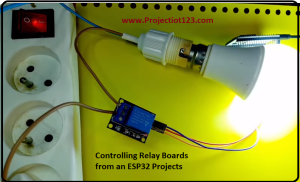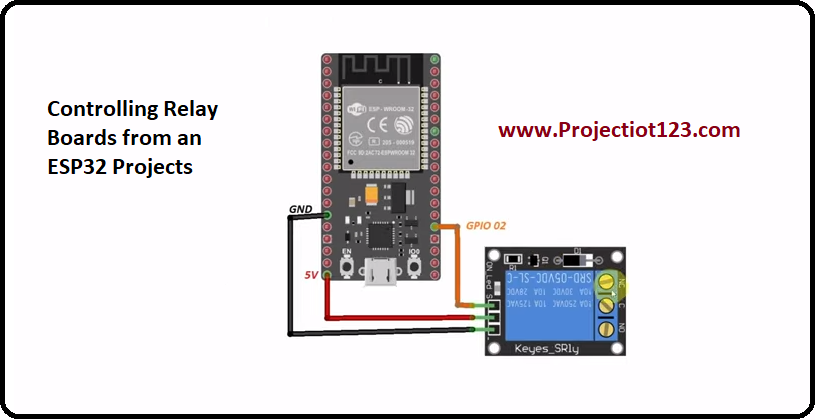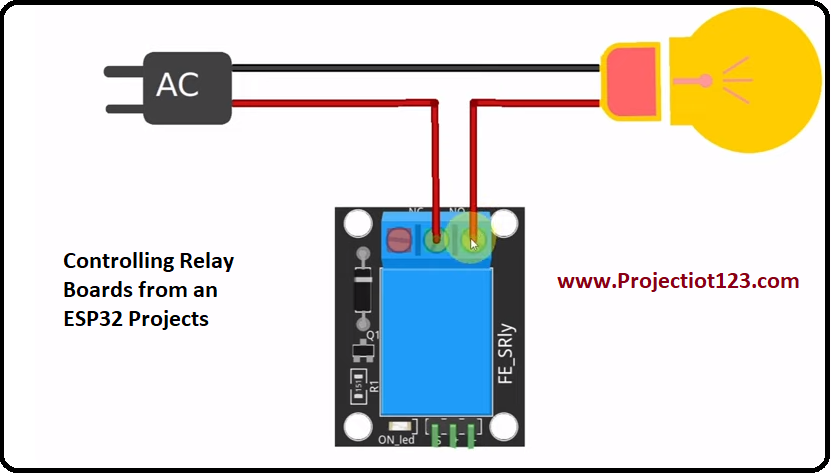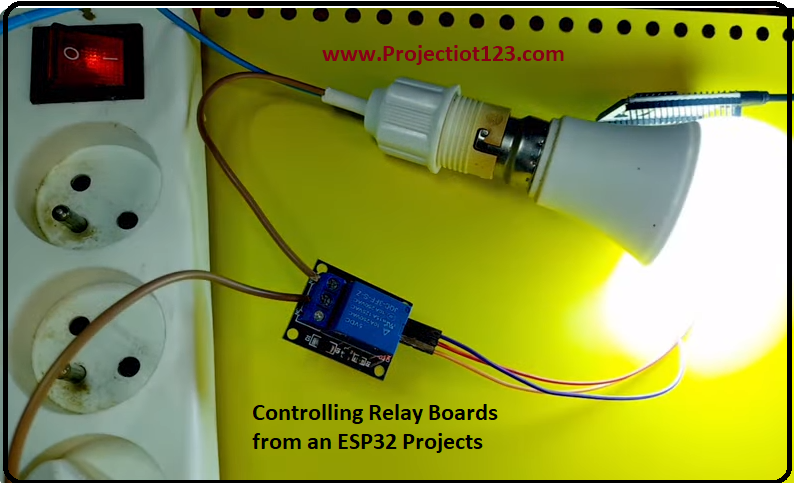Controlling Relay Boards from an ESP32 Projects

Controlling Relay Boards from an ESP32 Projects
In this article, we will learn how to Controlling Relay Boards from an ESP32 Projects.
In the last post, we learned how to make ESP32 NTP Server with Real Time Clock Projects.
Components Required:
- ESP32 Development Board:
- Relay Board:
- Power Supply:
- LED bulb
- Jumper Wires:
Understand Relay Boards:
Relay boards typically have multiple relays (switches) that can be controlled independently. Each relay has an input pin (like IN1, IN2, etc.) and a corresponding terminal for the device you want to control (like lights, fans, etc.).
Relay board circuit connection Diagram:

Working:
Controlling relay boards with an ESP32 involves using the ESP32’s digital output pins to switch the relays on and off.
By programming the ESP32 to send signals to the relay board’s control pins, you can effectively control the connected devices, turning them on or off based on your program’s logic or external inputs.

Usages:
Controlling relay boards with an ESP32 finds applications in various fields due to its versatility and ease of use.
Here are some common usages:
- Home Automation:
- IoT Devices:
- Industrial Automation:
- Security Systems:
- Agricultural Automation:
The flexibility and programmability of ESP32 microcontrollers combined with the switching capabilities of relay boards make this combination suitable for a wide range of applications, spanning from simple home automation to complex industrial control systems.
Note:
Remember to check the datasheets and technical specifications of the components you’re using to ensure compatibility and safe operation. Additionally, always handle electrical components with care and, if working with mains electricity, take necessary safety precautions.

